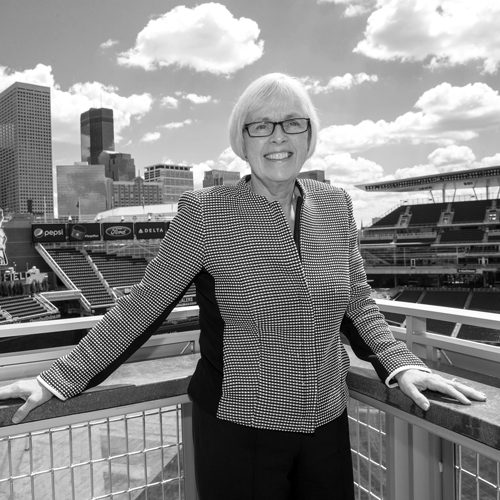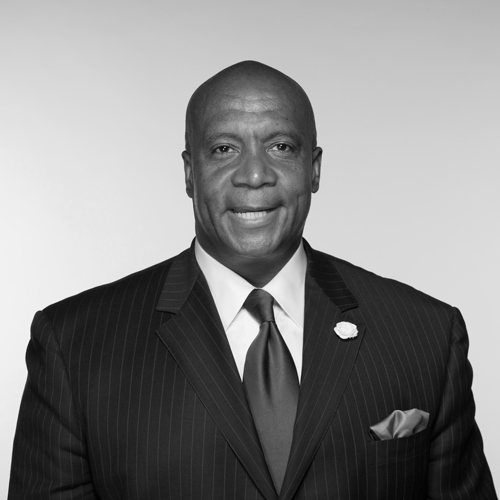Modern Counsel: Tesoro and Tesoro Logistics have quite a portfolio with their refining, marketing, and logistics businesses. What does that diversity mean for you as an associate GC?
Barron Dowling: At Tesoro Logistics, we operate everything from marine terminals to oilfield trucking operations with pipelines, storage, and distribution terminals in between. This portfolio can keep a lawyer on his or her toes. We encounter issues related to oil spill response, marine and maritime law, and large transactions with sophisticated customers. Our refining and marketing group ships crude oil and refined products on third-party regulated pipelines, so I am constantly mindful of the logistics involved with handling those volumes. For example, we regularly negotiate agreements with companies, including our affiliate, to expand our pipeline capacity and develop new pipelines. I am responsible for negotiating the rates Tesoro pays to use those third-party pipelines, and at any time, I probably have at least 15 ongoing rate proceedings I’m overseeing. Resolution of some past cases has provided hundreds of millions of dollars in economic value to Tesoro through refunds and reduced rates.
The oil and gas industry is more fast-paced than most might imagine. For example, a cargo of crude oil might become available, and my team and I might have only a few hours to make a decision about whether to buy it. A great deal of consideration and teamwork goes into that decision. Our team must collectively determine the suitability of the oil for our refineries, assess our logistical ability to unload it, vet the quality of the vessel, confirm the import regulatory status, structure the payment and financing terms, review the contracts, and then make a final decision within a limited time frame. These types of transactions are part of the normal course of our business since we operate on a large scale.
MC: Having been with the company for 17 years and experiencing its growth, have you had to become more of a generalist to accommodate new lines of business?
BD: Throughout my career here, I’ve represented all the areas of Tesoro’s business. Tesoro was always one of my clients when I was at a private firm. Eventually, I was brought in-house to represent our upstream operations, until we sold that division in the late 1990s. After that, I started working for the refining group, where I was surrounded by many extremely bright people who managed a sophisticated, complex, and constantly changing process. As Tesoro has grown, and particularly after we formed our master limited partnership, I have become more specialized and shifted my focus to our logistics business. My breadth of experience over my career is always valuable and often translates well to different types of transactions. Still, there are always new challenges. If I don’t learn something every day, then it’s not a typical day.
MC: Talk about the acquisition of QEP Field Services. Why was that a strategic transaction for Tesoro?
BD: Acquiring QEP Field Services (QEPFS), now called Tesoro Logistics Rockies, was a big step for us. Tesoro Logistics, as it existed, had not been in the natural gas logistics business. The driving factor behind the acquisition was to expand our logistics services and capabilities into natural gas, and that decision required a lot of due diligence. Our acquisition of QEPFS, which was a company with solid existing operations and natural gas expertise, positioned us to become a full-service logistics company. In areas like North Dakota there is a lot of opportunity for synergies between natural gas and our existing crude oil pipeline network. We have been expanding our crude oil pipeline infrastructure in the region following the Bakken shale boom and handling the natural gas is a natural extension of that operation.
MC: Have you faced any challenges incorporating QEPFS or in growing the natural gas business?
BD: The integration is going well. We have certainly had to focus on different operational aspects of the natural gas business, and are still working to fully integrate the new business into our existing scope of operations. In general, our business is constantly changing and we must manage the pace of growth. For example, new regulations have been enacted in the Bakken region following the recent production boom. In a boom environment, labor becomes scarce, and the work required to acquire easements for pipelines becomes more complex. For example, we have operations on tribal lands, so we must work closely with tribal councils to ensure we are operating with respect and within scope. Additionally, our business team must source truck drivers and contractors when the labor landscape makes them hard to come by. While these are business issues, we still get involved from a legal standpoint.
MC: What’s the dynamic like for lawyers collaborating with the other functions at Tesoro?
BD: The lawyer is like a hub in the spokes. On larger transactions, he or she should work to pull all the necessary pieces together and digest them. If the lawyers have questions, then they go to the subject-matter experts to understand the issue in greater depth. A large function of the legal role at a company like Tesoro is being a facilitator and a communicator among the business functions. If I hear something from IT and it is relevant to a deal, then I need to communicate it to another area of the company, such as accounting, so we’re fully cognizant of all key details related to the deal at hand.
MC: What are your best practices for being the best “hub” you can be?
BD: I am most effective as a collaborator, and I try to be the best resource I can be for our business teams. Many different people work on deals, and you have to know what is happening across all levels and functions to do the job right. Communication is key among everyone who is working on a transaction. You need to establish an open channel of communication and a framework to ensure that communication is clear and resonates properly. Translating the company’s business needs into a legal framework is probably my greatest strength. This requires a collaborative effort between lawyers and business experts where each much listen carefully and then assess the opportunity. I’d encourage those just starting out to be bold and unafraid to expose yourself; don’t be afraid to ask what may seem like a silly question. If you don’t understand something, ask about it, and don’t stop until you understand it. Sometimes those “stupid questions” uncover problems no one has considered. If you source feedback and knowledge openly and sincerely, then business experts are usually glad to educate you, and often, they end up learning something, too.

